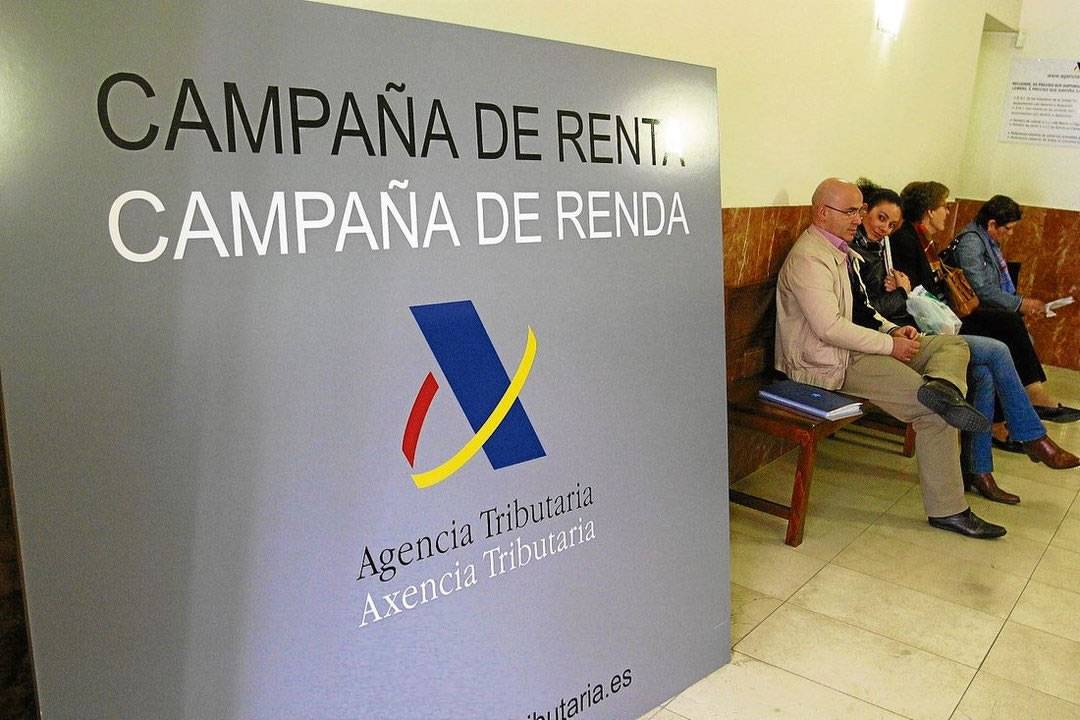Canary Island workers to get an extra €3,500 a year with income tax cuts
- 15-04-2024
- Business
- Canarian Weekly
- Photo Credit: Agencia Tributaria
Since taking office in 2023, the Canary Islands Government has set out to implement a reduction in Income Tax (IRPF) for all Canary Island citizens and residents who file tax returns (Declaración de la Renta), primarily workers and the self-employed. The aim is to provide a tax benefit that reflects living in an ‘outer region’ of Spain, similar to that enjoyed by residents of Ceuta and Melilla, and their geographical remoteness.
According to data from previous tax campaigns and a comparison with the situation of workers in Ceuta and Melilla, if the tax benefit is achieved, the average salary of workers in the Canary Islands would increase by between 200 and 300 euros per month per family.
For example, for a single person without children earning an average salary of 30,000 euros gross per year, equivalent to around 1,700 euros per month in 14 payments, the proposed benefit would mean an additional 300 euros per month. Similarly, for a couple with one child and a combined income of 30,000 euros – representing 35% of households in the islands according to data from Istac – the increase would be similar, between 250 and 300 euros per month.
José Ramón Barrera, the Commissioner of the Economic and Fiscal Regime of the Canary Islands (REF), along with tax advisors from the islands represented by the Secretary General of the Spanish Association of Tax Advisors (AEDAF), Orlando Luján, are convinced that the Canary Islands have the right to specific measures in the IRPF under the umbrella of their Canarian “special status”, granted by the Catholic Monarchs in 1487 to acknowledge the difference between living on the islands and the mainland.
Three Formulas Under Consideration:
The Commissioner of the REF is considering three formulas to accommodate the Canary Islands and ensure their citizens have the right to the income differential compared to mainland citizens.
The first, which now seems less likely, is to increase the personal and family allowances in the IRPF. Currently, these allowances are the same for all Spanish citizens. However, as Luján explains, they should be increased in the islands to account for the "extra costs" borne by Canarians. "The extra cost is a well-documented and real fact and should be compensated. Living here is not the same as living there," he asserts.
These subsistence minimums take into account the circumstances of each taxpayer: the number of children, if they have any disabilities, if they have dependent minors or elderly individuals under their care, etc. Currently, these considerations do not account for the costs of living in the Canary Islands.
This adjustment in the IRPF would be made to the taxable base, i.e., before applying the tax rate. After the tax rate is applied, the other two formulas under consideration involve granting bonuses and deductions.
One of these involves granting a bonus in the IRPF tax liability, similar to what is done in Ceuta and Melilla, and what has been done in La Palma following the volcanic eruption.
The third and final formula involves specifically reducing the taxable base for income earned in the Canary Islands. For example, if a person earns 30,000 euros, a certain amount could be exempt from IRPF taxation, such as 10,000 euros.
Nothing has been decided yet. The Commissioner of the REF continues to hold discussions with Madrid, which shows willingness, to obtain approval from the Treasury for the Canary Islands' income differential.
Orlando Luján believes that in addition to these three formulas, there should be an opportunity for any worker in the islands to benefit from the RIC (Reserve for Investments in the Canary Islands) under the same terms and investment requirements as self-employed people and companies.
This would allow anyone in the Canary Islands to reduce their tax burden in exchange for committing to invest, either directly by starting their own business, through participation in companies, or even through collective investment mechanisms.
Income Level Consideration for Bonuses
The income differential that the regional Government aims to achieve in the IRPF for Canarians compared to mainland citizens (which will result in more money in their pockets) will be progressive and applied according to different income levels. This was indicated this week by the Commissioner of the REF, José Barrera, who considered it necessary to apply different differentials based on the income and earnings of each taxpayer.
As he pointed out, they are considering the possibility of applying a model similar to pharmaceutical co-payment but with more tiers, as the healthcare measure includes "large income jumps." The pharmaceutical co-payment provides a certain level of assistance for incomes up to 18,000 euros, then from 18,000 to 100,000 euros, and subsequently, for incomes over 100,000 euros. "The jump is too big. In the second level, some additional tiers need to be added, otherwise, there will be a distortion," he said.
Barrera emphasises the importance of this differential for the Canary Islands' economy. "If that money stays in the pockets of Canarians and does not go to Madrid via IRPF (Income Tax), it will lead to increased spending and a boost for businesses, in addition to generating more indirect income through taxes such as the IGIC and Corporate Tax."
The Commissioner of the REF and tax advisors are confident in garnering support from citizens and all political groups in the archipelago to advocate for the implementation of some of these measures, as it would be very positive for the economy of the islands as a whole and for all their inhabitants.



























































